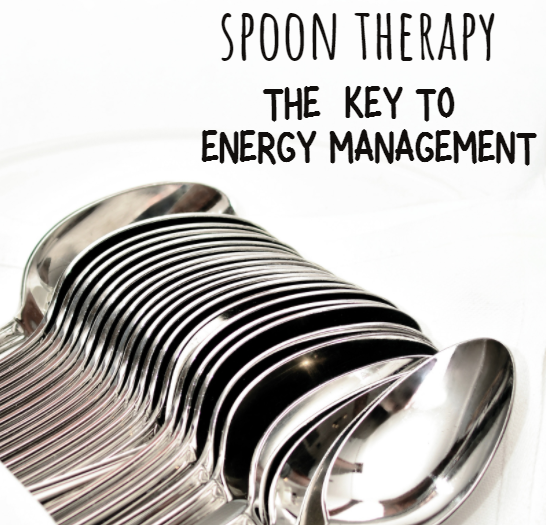Spoon Therapy The Key To Energy Management
What is Spoon Theory?
The Spoon Theory was born in a diner when the author of the theory, Christine Miserandino, a lupus patient, was asked by her best friend how it felt to be sick. She was startled by the random question but tried to gain composure by looking around for implements to vividly demonstrate her situation.
Grabbing spoons from tables in the diner, Christine bunched them all together, handed them to her best friend and said, “a healthy person has a never-ending supply of spoons.” The spoon represents the unit of energy to be spent for the day. But to her friend who is portraying a person with Lupus, Christine gave her 12 spoons. Christine demoed how the 12 spoons will be used on every activity her friend will do for the day, not starting with when she starts to work but starting from getting out of bed, taking a shower, preparing her breakfast, and commuting to work. All those activities will use a spoon. It means her best friend needs to be mindful of her tasks for the day and use the spoons wisely.
Energy management is the foundation of productivity.
Using the principle in a “normal” person’s life gives a person a better perspective of energy management. You don’t measure your day and productivity by time.
Manage your energy consumption because the more energy you have, the more productive you will be. Your time is hinged on how much energy you have. Even if you have 15 tasks for the day in your time tracker or calendar, but you have mismanaged your energy, you will be able to do much less.
Mindful Use of Energy
Writing an email in your quiet office room usually takes you five minutes and costs you half a spoon. But writing an email after getting out of a heated meeting might take you 30 minutes and two spoons! After spending three spoons in that heated meeting, how many spoons do you now have left for the day? You can still handle tasks, but the quality of your work will suffer. And to continue with your work in that frenzied state will add up to the spoons you will be using up.
Can You Gain New Spoons?
There are ways to regain some spoons. Taking a break after that heated meeting will allow you to gain a spoon or two, depending on your recovery pursuit. Listen to your favourite music, walk to a nearby coffee shop, drive around for a bit, invite a friend for a quick bite or chat, and some people take gym classes during lunch.
After your recovery exercise, you will go back to work with more spoons than when you left.
Knowing your biorhythm is the key. If you are a morning person, doing a heavy task in the morning may only cost you a spoon. Doing that demanding task in the afternoon when you are beat might cost you two spoons.
So how do you get started?
- To add objectivity to this project, do an actual energy consumption journal of your activities for at least a week. Note each task and how much energy you spent on each task. From the time you wake up to the time you retire to sleep. Remember, doing your grocery shopping after work uses up spoons, cooking dinner, or picking up your kids from school.
- Analyze your energy data against your biorhythm. What time of the day does your energy peak or ebb?
- Adjust your activities and tasks according to your biorhythm.
Schedule heavy tasks when your energy is at its peak. For future dates when you foresee a critical energy requirement, like a major presentation, you might want to schedule it when your biorhythm is at its peak. But if you have no control over it, try to schedule recovery activities within the day for spoon redemption.
TAKE AWAY
Energy management is the foundation of all productivity and performance.
Your schedule should depend on what your energy will allow, not how much time you have in a day. It is futile to say yes to commitments and fill your calendars with activities that you will end up doing only half of because your energy cannot handle all of them. Be mindful of every task you write on your calendar.
If you are ready to take the next step in Energy Management, let’s talk.
« Back